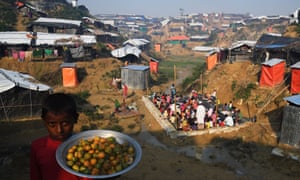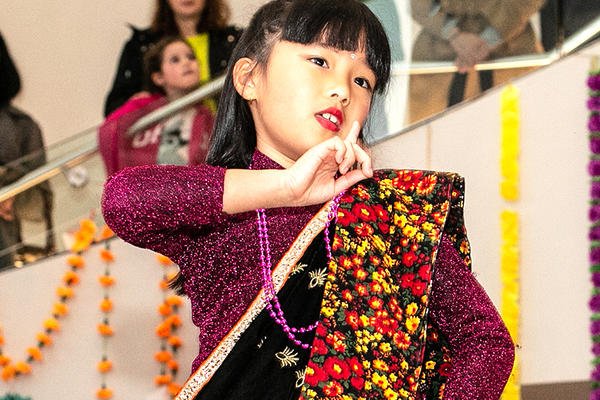
Ours is a world overflowing with suffering. It is a world desperately in need of solutions. Many of its crises require political leadership and courage – something which in 2017 was often in short supply. So instead of suggesting that 2018 should be a year of solutions, my new year wishlist is for 12 months of change.
My first wish is for more education. The children trapped in crises today should not lose the opportunity to contribute to their world tomorrow. But of the estimated 462 million young people aged three to 18 living in countries affected by armed conflict, disasters and other emergencies, 75 million are not receiving adequate schooling. More than half of those displaced from Rakhine state in Myanmar are children. We are at risk of losing a generation.
Education must become a priority in humanitarian settings, not an afterthought. It also needs to be specifically tailored to help children process the horrors they have witnessed, and to counteract the horribly compelling narratives put forward by extremist groups.
Teaching should also extend to communicating humanitarian values, which can help mitigate ethnic or religious hatred. This is a massive collective task, and one on which the Red Cross and Red Crescent Movement is already working.
The second wish is just as bold: 2018 should go down in history as the year the world seriously mobilised for health emergencies. The deadly rise in recent years of forgotten or unknown diseases – like Ebola, Zika, yellow fever and plague – is a reminder of how vulnerable we all are to the next, and perhaps long overdue, public health emergency.
The rapid movement of people across borders and around the globe is often cited as the source of our vulnerability to pandemics, but there is another deeper reason. Massive economic inequality and woeful under-investment in public health systems and capacity mean that too many countries are ill-equipped to respond to health crises. Weak health systems anywhere should worry us all. Diseases know no borders. None of us are safe until all of us are safe.
In countries where health systems are chronically weak and unable to cope, we need more clinics, more hospitals, and more nurses and doctors, backed by better resources and better training.
And the key to confronting pandemics effectively lies in early detection and very rapid response. Well-prepared communities are best equipped to help detect epidemics and stop them promptly. Governments and international organisations need to engage with communities, promote local ownership, invest in local action, and build trust.
That is where people like Red Cross and Red Crescent volunteers come into the equation, linking isolated and remote communities with formal health structures.
Which leads me to my third wish for 2018: the world needs to invest much more in strengthening this kind of grassroots action.
People working on the ground are still not getting the recognition they deserve, and are too often treated as sub-contractors. The great shame here is that these teams are often best placed to bring about change. They are always there in communities on the side of people in need; they speak local languages and understand cultures, and they are committed to helping their neighbours in crises and far beyond.
This is especially so in the growing number of regional disasters that rarely hit the headlines or attract international funding.
The answer isn’t simply to shift the burden of emergency response to the shoulders of communities, but to develop a complementary humanitarian system which is as local as possible, while being as international as necessary. There will always be the need for specialised expertise. But this shouldn’t come at the expense of local teams.
The International Red Cross and Red Crescent Movement is part of this process. In 2018, it will invite partners to contribute to its National Society Investment Alliance, a tool to fund and build the capacity of its 190 national societies to become stronger local humanitarian organisations.
2017 ended with the world in a more perilous place than it was at the start of the year. My hope for 2018 is that the tide begins to turn towards new thinking on humanitarian challenges. What we need are “glocal” organisations – designed to put humanity at the centre of all that they do, and to meet both global and local needs at the same time.
source:-.theguardian.



